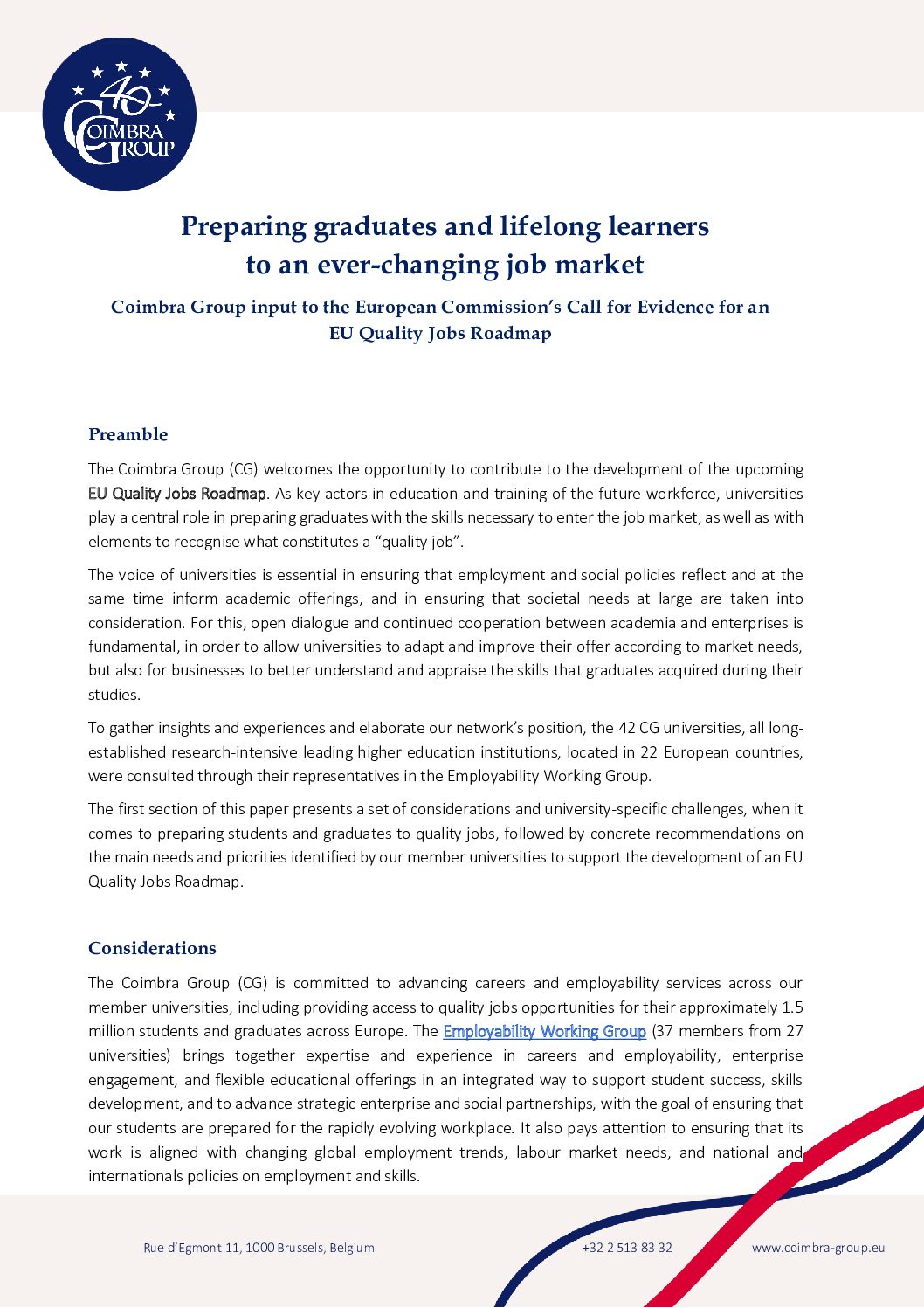Preparing graduates and lifelong learners to an ever-changing job market
29 July 2025
Coimbra Group’s input to the European Commission’s Call for Evidence for an EU Quality Jobs Roadmap
The Coimbra Group (CG) welcomes the opportunity to contribute to the development of the upcoming EU Quality Jobs Roadmap, for which the European Commission recently published a call for evidence, in order to receive specific proposals on how to foster quality jobs in the EU. As key actors in education and training of the future workforce, universities play a central role in preparing graduates with the skills necessary to enter the job market, as well as with elements to recognise what constitutes a “quality job”.
The voice of universities is essential in ensuring that employment and social policies reflect and at the same time inform academic offerings, and in ensuring that societal needs at large are taken into consideration. For this, open dialogue and continued cooperation between academia and enterprises is fundamental, in order to allow universities to adapt and improve their offer according to market needs, but also for businesses to better understand and appraise the skills that graduates acquired during their studies.
To gather insights and experiences and elaborate our network’s position, the 42 CG universities, all long-established research-intensive leading higher education institutions, located in 22 European countries, were consulted through their representatives in the Employability Working Group.
The paper outlines the critical role of higher education, and particularly the universities’ career services, in preparing both graduates and lifelong learners for a fast-evolving labour market. It highlights key challenges such as mismatch between the qualifications obtained and the actual positions available, limited access to quality internships and employment especially across specific fields or in specific regions, and insufficient financial and staffing support fora growing and diverse student body, including those pursuing lifelong learning.
To tackle these challenges, the recommendations advanced are:
- Promoting EU-level policies that ensure fair pay and robust hosting agreements for all internships, especially those integrated into academic curricula;
- Increase EU funding for lifelong learning, particularly for learners from disadvantaged regions, and promote upskilling and reskilling through targeted subsidies for university-led professional development and training programs;
- Foster stronger university-enterprise collaborations through structures like a European Skills Council, enabling universities to stay aligned with evolving skills needs in business and industry;
- Support by developing and sharing timely, actionable labour market information that universities can use to adapt curricula and career services to meet emerging employment needs.
Overall, the Coimbra Group calls for more focus on and support to university career services, in so far as they are a critical resource for graduate transitions, as well as more resources for upskilling and reskilling initiatives for lifelong learning activities.



